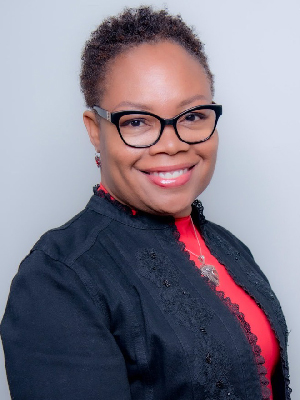Breaking Barriers to Colorectal Cancer Screening in Central Brooklyn
By Office of the President | Mar 11, 2025
According to the American Cancer Society, colorectal cancer poses a significant health risk to African American men, who are about 20 percent more likely to develop the disease and approximately 40 percent more likely to die from it compared to other groups. Despite these alarming statistics, screening rates remain low, leading to late-stage diagnoses and poorer health outcomes.
Cultural factors contribute to this disparity. Among African American men, perceptions of masculinity can influence health behaviors, with some viewing medical procedures like colonoscopies as threats to their manhood. This perspective may lead to reluctance to seek preventive care.
In Caribbean American communities, cultural beliefs and lack of awareness about colorectal cancer screening can also serve as barriers. Mistrust in the healthcare system and limited access to culturally sensitive information further hinder participation in screening programs.
 Recognizing these challenges, Vikki S. Small, MPH, LSSGB, CSM, Senior Program Manager for Patient Access, is leading a phased digital strategy
to raise awareness and increase screenings among African American and Caribbean American
men in Downstate’s community. With Central Brooklyn home to one of the largest Caribbean populations in New York
City, this initiative targets screening gaps in the communities most in need.
Recognizing these challenges, Vikki S. Small, MPH, LSSGB, CSM, Senior Program Manager for Patient Access, is leading a phased digital strategy
to raise awareness and increase screenings among African American and Caribbean American
men in Downstate’s community. With Central Brooklyn home to one of the largest Caribbean populations in New York
City, this initiative targets screening gaps in the communities most in need.
The first phase focused on enhancing electronic health records (EHR) systems to streamline referrals, tracking, and follow-ups. Implementing a closed-loop referral process allows primary care providers to monitor patient referrals from start to completion, aligning with the Patient-Centered Medical Home model. These upgrades immediately increased GI referrals by 200 percent, primarily for colonoscopies, proving efficient workflows can drive higher screening rates without added costs. Due to its success, the EHR-based care coordination model has expanded across Downstate’s outpatient services.
Despite improved referral rates, barriers to screening persist. Some men perceive colonoscopies as a challenge, while medical mistrust, language barriers, or lack of awareness deter others. Addressing these concerns is critical to ensuring earlier diagnoses and better survival outcomes.
To tackle these challenges, the next phase centers on digital engagement to educate, reassure, and encourage screenings. Primary care providers, often the first trusted medical contact for patients, appear in brief two-minute videos answering common concerns about the screening process, potential discomfort, and the importance of early detection. These videos are available in Haitian Creole, Spanish, and English.
A planned SMS campaign will reinforce key messages, send screening reminders, and encourage follow-through. By incorporating trusted providers in culturally relevant messaging, the campaign addresses fears and misconceptions, especially among younger men who may be unaware that screening starts at age 45.
Ms. Small collaborates with Tarah Magloire, M.D., Clinical Assistant Instructor; Ernest Garnier, M.D., Clinical Assistant Professor of Medicine and Ambulatory Internal Medicine Director; and Garett Rhule, M.D., Clinical Assistant Professor, to integrate these strategies into patient care.
This initiative establishes a cost-effective, scalable model for increasing screening rates by combining EHR modernization with targeted digital outreach. Leveraging Downstate’s internal resources and trusted community voices, the project demonstrates the power of digital transformation in preventive cancer care—ensuring more men get screened, detect cancer early, and improve their chances of survival.
Note: The Office of Communications and Marketing’s videography team, Ustinov Luke and Adesiji Awoyinka, produces culturally relevant videos to encourage participation. These videos will be accessible via QR codes, brochures, and online platforms to boost completion rates.
Tags: Cancer